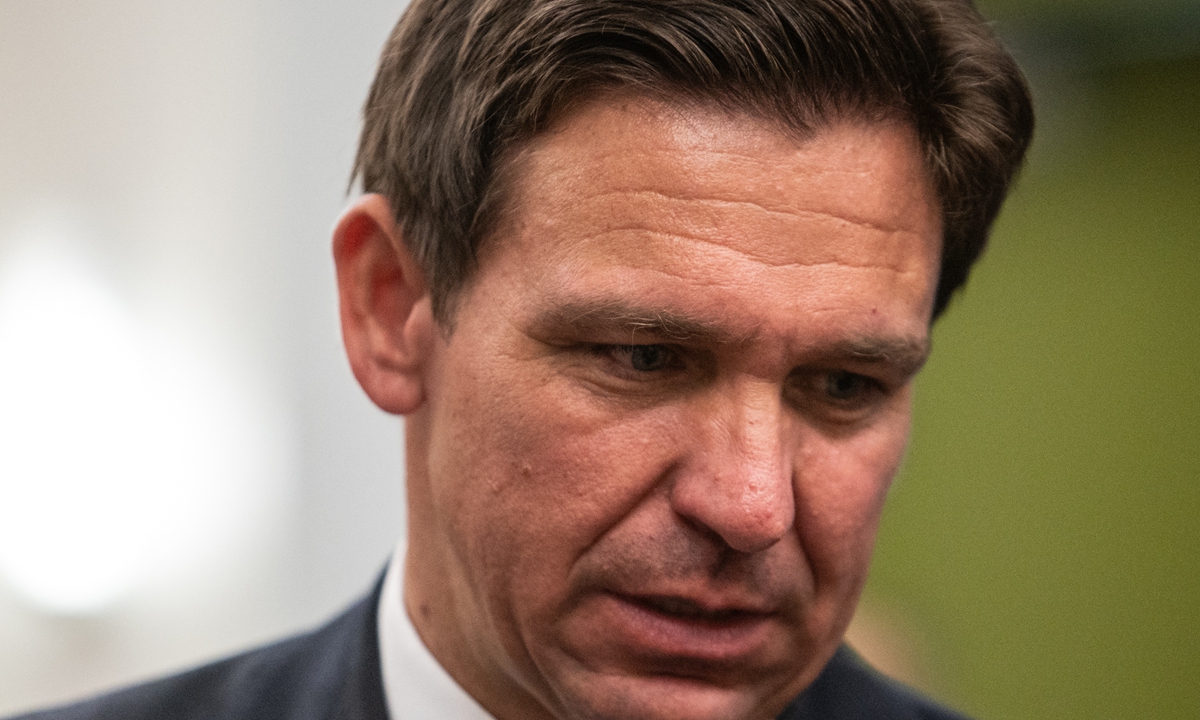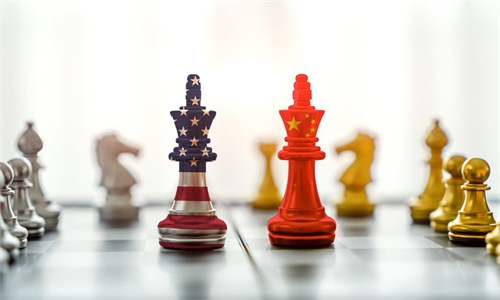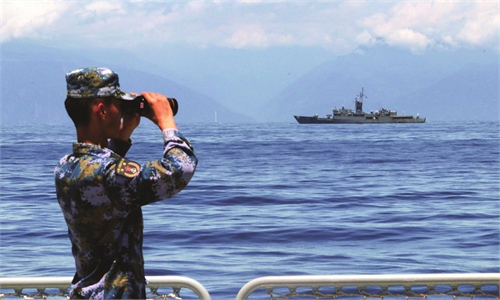
Florida Governor and 2024 Republican Presidential hopeful Ron DeSantis Photo:AFP
In the context of the Democratic administration's recent pursuit of greater engagement with China, Republican presidential candidate Ron DeSantis has revealed his aggressive stance against China over economic issues while making a provocative gesture on the Taiwan question during campaign events for the 2024 nomination race.
Analysts said on Tuesday that DeSantis' anti-China rhetoric is mere clutching at straws amid an attempt to salvage his campaign in the face of a dropping poll results. What the US can do to China depends on the strength of both sides, and increasing its stubborn anti-China efforts will only accelerate the decline of American hegemony.
Speaking at a campaign event in New Hampshire on Monday, DeSantis, who is also the governor of Florida, said his top priority would be "wresting economic control from China" by ending China's preferential trade status, preventing companies from sharing critical technologies with China, according to an Associated Press report.
DeSantis said he would "incentivize the repatriation of US capital" through tax abatements, shift mining in critical minerals from China to the US, and dramatically limit economic links between the two nations," according to Reuters.
DeSantis said he would also look at a ban on TikTok, a popular video sharing app owned by Chinese company ByteDance, according to a Wall Street Journal report on Monday.
In an interview with Fox News in July, he described China as "the No. 1 geopolitical threat" to the US. On China's core interest and red line, the Taiwan question, DeSantis said on Monday that he would deter China's "invasion" if he wins the presidential election in 2024.
According to a New York Times poll, former US president Donald Trump holds a decisive advantage in the presidential nomination race, leading DeSantis, his nearest challenger, by 37 percentage points.
DeSantis's remarks are pure campaign rhetoric, and like some other US politicians, he is clutching at straws by using his "anti-China" posture, Shen Yi, a professor at the School of International Relations and Public Affairs of Fudan University, told the Global Times on Tuesday.
DeSantis now finds himself at risk of even failing to come second. In a GOP primary poll released on Thursday, entrepreneur Vivek Ramaswamy caught up with DeSantis, both polling at 12 percentage points after Trump. Over the weekend, DeSantis dropped below Ramaswamy for the first time in an online election betting market.
"It's essentially actions, not words, that truly affect US-China relations," Shen said.
In April 2001, former US president George W. Bush pledged that the US would do "whatever it takes" to help Taiwan island defend itself. However, the September 11 attack, which made terrorism the top US enemy, made Washington in great need of cooperation and support from the international community. In 1993, former US president Bill Clinton threatened to eliminate China's preferential trade status, but this failed due to pressure from the US business community, according to VOA.
"Can DeSantis, a man who is struggling in his party's primaries, do what Bush and Clinton couldn't?" Shen said, noting that the strength gap between China and the US has narrowed dramatically, compared to more than two decades ago.
The direction of China-US relations and how far the actions of US politicians can go is ultimately determined by China's strength, not by the favorability of US politicians toward China, Shen said.
Increased anti-China efforts will only accelerate the decline of US hegemony, the expert noted.



